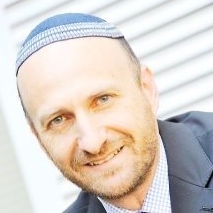
News

For censorship to exist, it’s sufficient for academics to do nothing
SHAUN ZAGNOEV
While not succeeding at a macro level, boycotts do from time to time result in Israeli scholars being excluded, whether directly or indirectly, from taking part in academic gatherings. This, unfortunately, was the case last week, when it emerged that seven academics from Israeli universities and one from a Palestinian institution were removed from the speaking programme of an upcoming conference at Stellenbosch University in response to threats of disruption by anti-Israel activists.
What made the situation worse was the university’s stubborn refusal to acknowledge, in the face of all the evidence, that the academics had been excluded from the programme in the first place. Instead, it has persisted in saying that they “voluntarily” chose not to attend the conference – something Professor Rivka Carmi, the President of Ben-Gurion University of the Negev, has compared to saying that a mugging victim “voluntarily” surrendered his wallet after being threatened with a gun.
Before taking any action, we made a concerted effort to clarify what had happened. Our investigation, which included communicating with the academics themselves and their universities, as well as with the Stellenbosch administration, confirmed that the conference programme was, indeed, altered to exclude not just Israeli speakers, but also a Palestinian academic, Professor Mohammed Dajani.
Dajani was removed from the programme, as according to the Boycott, Divestment, Sanctions (BDS) lobby, he was not an “authentic” representative of the Palestinians. This lack of “authenticity”, one finds on closer examination, is due to Dajani being a noted peace activist who works to foster dialogue aimed at achieving mutual empathy and understanding between the two peoples. This is why the South African Jewish Board of Deputies (SAJBD) brought him out as a speaker for “Israel Apartheid Week” in 2016. We find it particularly appalling that this previous association between Dajani and ourselves was cited by the organisers as a reason for the cancellation of his session.
The SAJBD will continue to lobby strenuously against censorship and intolerance at our universities, and assist students as much as we can whenever they are confronted with it. At the end of the day, though, those who should be at the forefront of this fight are members of the academic community themselves. The latest antics of the BDS lobby have yet again revealed the movement to be anti-peace, anti-dialogue, and contemptuous of fundamental democratic norms and standards. Of all people, one would expect members of the academic profession to recognise the BDS movement for what it is, and treat it accordingly.
In view of Stellenbosch University having asserted that the speaking programmes of the eight academics were not, in fact, cancelled, the board wrote to it to suggest that in that case, it should have no problem in reinstating the original programme, thereby putting the whole controversy to rest. Perhaps unsurprisingly, we are yet to receive an answer.
- Listen to Charisse Zeifert on Jewish Board Talk, 101.9 ChaiFM, every Friday 12:00 to 13:00.




